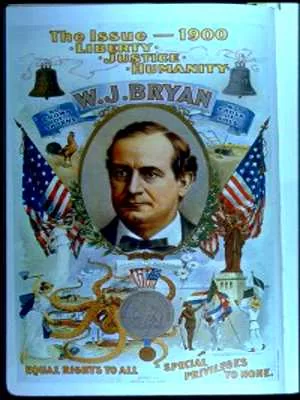Discover the Shocking Truth Behind the Scopes Monkey Trial!
In the annals of American history, few events have sparked as much debate and controversy as the Scopes Monkey Trial of 1925. This landmark case not only highlighted the tension between science and religion but also set the stage for ongoing discussions about education, freedom of speech, and the role of government in personal beliefs.
At the heart of this trial was John Washington Butler, a farmer and state representative from Tennessee, whose legislation—the Butler Act—prohibited the teaching of evolution in public schools.
The Butler Act: A Reaction to Evolution
Alarmed by reports that children were questioning the literal truth of the Bible due to the teachings of evolutionary theory, Butler introduced the Butler Act, which became effective on March 21, 1925. The Act stated that educators could not teach any theory that contradicted the biblical account of creation. This legislation was a direct response to the growing acceptance of Darwinian evolution, which was gaining traction in educational institutions across the United States.

The American Civil Liberties Union (ACLU) quickly took notice of the Butler Act, offering legal support to anyone who would challenge it. This set the stage for a dramatic confrontation in the small town of Dayton, Tennessee.
Birth of a Test Case
Enter George Rappelyea, a mining engineer, along with local figures like Walter White, the county superintendent of schools, and Sue K. Hicks, a local attorney. They devised a plan to challenge the Butler Act by bringing a test case to court. Their goal was not only to contest the law but also to attract publicity and revenue to Dayton. They found their willing participant in John Thomas Scopes, a local teacher who had inadvertently violated the Butler Act by teaching evolution from the state-approved textbook, Civic Biology by G.W. Hunter.
On April 24, 1925, Scopes was arrested for teaching evolution, and the stage was set for a trial that would capture the attention of the nation.
Trial: A Media Circus
The trial began on July 10, 1925, and quickly became a media sensation. Reporters flocked to Dayton, turning the courtroom into a spectacle filled with preachers, lawyers, students, and curious onlookers. The atmosphere was electric, with food stalls and souvenir vendors lining the streets. A banner hanging from the courthouse read, “Read Your Bible Daily,” setting the tone for the proceedings.
Judge John T. Raulston presided over the trial, emphasizing that the jury was to focus solely on whether Scopes had violated the Butler Act, not on the merits of the law itself. The prosecution, led by William Jennings Bryan, a three-time Democratic presidential nominee, called several witnesses to testify that Scopes had indeed taught evolution.
Clash of Titans: Darrow vs. Bryan
On the defense side, Clarence Darrow, a prominent civil libertarian, took center stage. His strategy was to have Scopes found guilty, allowing for an appeal that could challenge the constitutionality of the Butler Act. Tensions escalated as Darrow and Judge Raulston clashed over courtroom procedures, with Darrow arguing for the inclusion of expert witnesses to testify on evolution.
In a dramatic twist, Darrow called Bryan to the stand, aiming to expose the inconsistencies in his literal interpretation of the Bible. The cross-examination became a battle of wits, with Darrow questioning Bryan on various biblical stories, such as the creation of Adam and Eve and the story of Jonah. Bryan, initially steadfast in his beliefs, began to waver, admitting that some biblical passages were not meant to be taken literally.
Verdict and Its Aftermath
On July 25, 1925, the jury took just nine minutes to find Scopes guilty, imposing a fine of $100. However, the verdict was later overturned on a technicality, as the judge had improperly set the fine amount. Despite this, the Chief Justice of Tennessee ultimately dismissed the case, calling it “bizarre.”
The trial had far-reaching implications. It highlighted the cultural divide in America between modernist and traditionalist views, a divide that continues to resonate today. The Butler Act remained in effect until 1967, when it was finally repealed.
Legacy of the Scopes Trial
The Scopes Monkey Trial left an indelible mark on American society. It sparked a national conversation about the role of science in education and the limits of religious influence in public life. The trial also propelled figures like Darrow and Bryan into the national spotlight, with Darrow being celebrated as a champion of civil liberties.
In the years following the trial, Scopes pursued a career in geology and worked for the United Gas Company, while Darrow retired from legal practice. The debate over evolution and creationism continues to this day, with occasional flare-ups in both the United States and abroad.
Conclusion: A Continuing Debate
The Scopes Monkey Trial serves as a reminder of the ongoing struggle between science and faith, a battle that is far from over. As we reflect on this pivotal moment in history, it is essential to recognize the importance of open dialogue and the need for education that respects both scientific inquiry and personal beliefs.
In a world where the legacy of Charles Darwin is celebrated, as evidenced by his image on British currency, the conversation about evolution and its place in education remains as relevant as ever. The Scopes Monkey Trial may have concluded nearly a century ago, but its implications continue to shape our understanding of science, religion, and the very fabric of American society.